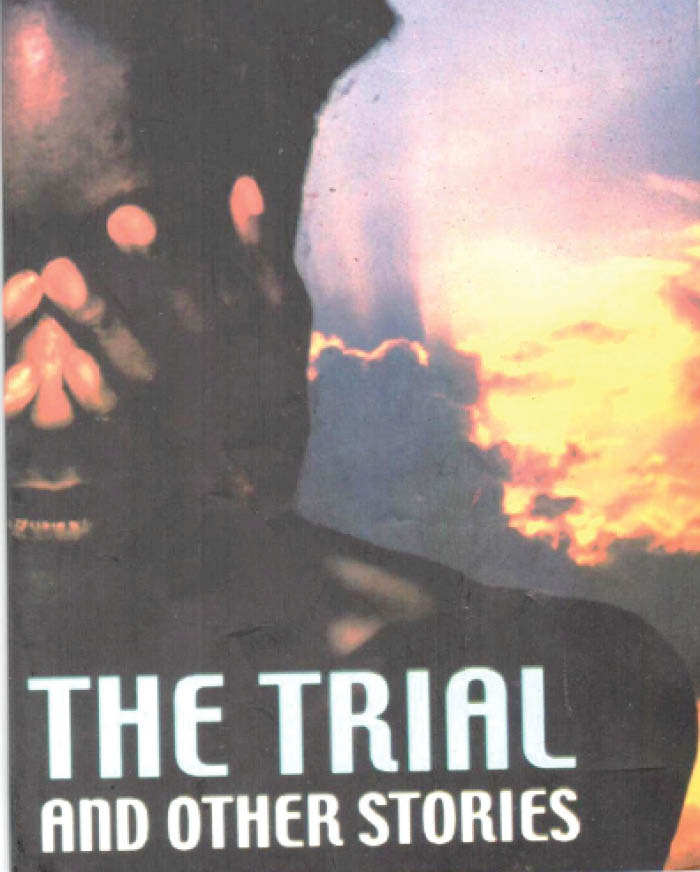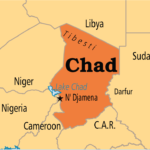Title of the book: The trial and other stories
Author: Ifeoma Okoye
Publisher: African Heritage Press New York, Lagos (2005)
Number of pages: 86
Book reviewer: Dr. Bukar Usman
The book ‘The trial and other stories’ written by Ifeoma Okoye contains 9 stories about widowhood in Igbo land. Much of the settings are in Enugu, Enugu State where the author is based. Other places include Onitsha, Abakaliki and Owerri and several villages. Outside Igbo land, the settings include Lagos, Kano, Ibadan and Calabar.
The first story, Soul Healers, is about a woman who resides in Lagos but had her two children schooling at Owerri. One was aged five and half while the other was 4. Her husband was a civil engineer in Kano when his business collapsed. Though the woman was a graduate, she was jobless. A friend of hers found her a job in a bank in Lagos. She defied her husband and left with the children to take up the job. The husband who refused to follow them died suddenly from a stroke. His relations accused the woman of the death of her husband by abandoning him in Kano. To punish her, they took the children away from her, put them in custody of the husband’s elder sister at Owerri. She was warned not to visit them. She could not afford to obey the instruction. The children are her soul healers and she was prepared to die for them.
The widow went to Owerri to fetch her children. She hired a taxi to drive them to Enugu for a flight back to Lagos.
The second story titled Between Women is about a woman who was an orphan and a widow. Her five and half year-old daughter lived with her mother-in-law in a village in Ebonyi State while she took a job in Enugu as a domestic servant and had not seen her daughter for nearly two years. She had wanted to bring the daughter to Enugu but the wife of her employer would not agree. She asked for permission several times to visit the daughter, but the wife of the employer who proved to be insensitive to her plight would not agree. The widow could not afford to leave the job even though she was paid a pittance.
The widow learnt from her aunt who lives in Enugu that her daughter was on admission in a hospital at Abakaliki. She once again requested for permission to visit the daughter and was denied. At last, she bolted away leaving her job for good because her daughter gave meaning to her life.
Strange Disease is the title of the third story in which a widow’s brother-in-law insisted on marrying her. She did not want to but was afraid to tell him because he might harm her and her two teenage children. As a way out, she pretended that she had a strange disease and stripped naked before the man to prove her point. It was at that stage that the brother-in-law left her for good.
‘The Voiceless Victim’, which is the fourth story in the book concerns an 18-year-old widow with a baby and a toddler who was quarrelling with a middle-aged woman for space to beg. The middle-aged woman reluctantly accommodated her upon intervention by a spectator who mediated. A female passer-by watched the quarrel. After the settlement, she was approached by the teenage beggar for money to buy food for her children. The woman angrily shunned her, asking her to go and find a job. The teenage beggar then traced the passer-by’s office to plead with her to find a job for her. She said her husband died the previous year and that she married because her mother needed the bride price to treat her father who was critically ill for years. She was two months pregnant when her husband died. She was a victim of child marriage, child widowhood and of world imbalances. Her hopelessness was pitiful, hence the woman resolved to find a job for her after giving her some money for transport and few days meal.
‘The Trial’ is the fifth story that also doubles as the title of the book. It is a story about a widow in a village who was put on trial by a team of thirty women made up of her husband’s relations. Her brother-in-law who did not approve of her marriage in the first instance had accused her of poisoning her husband. Hence, the traditional trial which if proven she would die within 28 days of the trial. Her mother advised her to undergo the trial or else she and her relations would be ostracized by the whole town and she’d be labelled a husband killer.
She was determined to prove her innocence. To do that, she had to stand up against her brother- in-law.
As the trial went on in spite of her explanations, the brother-in-law washed her dead husband’s hands in a bowl of water and she was asked to drink it to prove her innocence. She thought of something to stop the trial. She noticed the brother-in-law dipped his fore-finger into the bowl of water. She had previously been warned to be on the lookout for such happening. In a counter move, she accused the brother-in-law of putting something into the water and therefore refused to drink. Instead, she insisted that the brother-in-law must first drink the water.
Story six, ‘The New Business Woman’ narrates the challenges of a woman whose husband was a motor spare parts dealer in Enugu before he died of hepatitis. She had three children to cater for, so she resolved to continue running the business even though she doesn’t know how and the business was a male dominated business. She knew the business was profitable and was determined not to dispose of the shop.
A kind spare parts dealer agreed to put her through because he said her late husband was a good man. The woman was thereby relieved of her anxieties as she was determined to shame her detractors who wanted her to dispose of the shop.
‘From Wife to Concubine’, the seventh story, is a narrative of a widow whose brother-in-law was a former police officer and lives in a village in Anambra State. He wanted to dispossess his late brother’s wife of a block of flats in Onitsha. She resolved to do all she could to prevent him from taking the matter to court where he was most likely to have his way because of his connections. She discovered that her marriage certificate and other important documents that would support her claims had disappeared from her room in Onitsha where she lived with her husband before he died. She could not get a copy of the marriage certificate because fire had gutted part of the registry.
Aside from being subjected to dehumanizing widowhood rites, her brother-in-law went about telling people that she after all was not legally married to his brother and that she was only a concubine.
She told her in-law that the block of flats was hers and reminded him that it was he and her husband who pleaded that she register the property in the husband’s name so as not to embarrass him among his friends as it was odd for a man to live in a wife’s home. In spite of her explanations, the brother-in-law gave her and her children three months to vacate the property. An idea then occurred to her. She confronted her brother-in-law with a secret about the circumstances of the death of her husband’s cousin who allegedly shot himself on a farm. The secret was that the brother-in-law was implicated in the death, being the one who went to the farm with a gun. As the brother-in-law did not want the secret revealed, he returned her marriage certificate and nothing more was said about her ownership of the property.
‘Second Chance’, being the eighth story, is the case of a widow with two children who went to see her husband’s paternal uncle to intimate him of her plan to remarry a widower who had three children. The husband’s uncle did not object to the marriage but said she would not take the children along. The woman said she can’t leave the children who were only five and three years old. The husband’s uncle said she they may have to take the children away from her, if need be, by force in compliance with tradition. She was in a dilemma as to whether to marry and leave the children or remain alone in poverty.
‘Daughter for Sale’ is the title of the last and nineth story of the book. It involves a widow who was concerned about ill-treatment she was receiving from her brother-in-law. It was the same type of treatment her mother had received in the hands of her father. Her father had sold his 4 young daughters, one after the other, to those who could pay the highest bride price. It came to her turn when her father gave her out for marriage at the age of 16. She lost her first son who was 23 and the second who was 21, was left with two daughters.
Her brother-in-law married out one of the daughters and got a handsome bride price. According to tradition, she did not know the amount because a woman was not supposed to know. When her second daughter was to get married, she decided that what happened the first time would no longer happen. She would allow only a token amount or nothing at all so that the brother-in-law would get nothing. The brother-in-law gathered the extended family led by an 80-year-old man to plead with her. She stood her ground and had her way.
The fate of widows and their children in Igbo land depicted in the stories is somewhat pitiful and horrifying. While some of the practices might have served the society in the past, they evidently require a serious review in modern times.
Dr. Bukar Usman, former permanent secretary in the presidency, Abuja

 Join Daily Trust WhatsApp Community For Quick Access To News and Happenings Around You.
Join Daily Trust WhatsApp Community For Quick Access To News and Happenings Around You.


